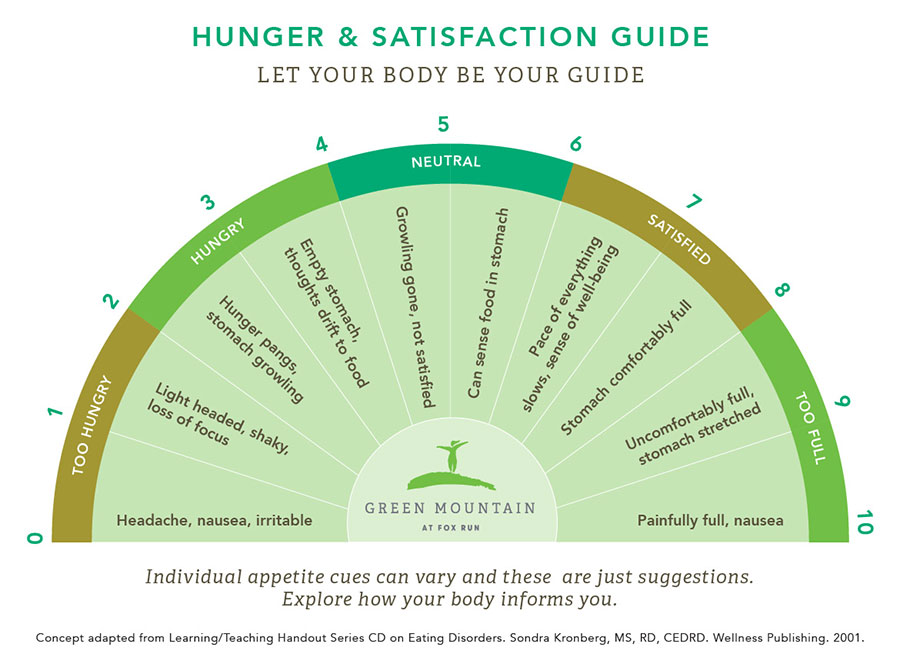How many diets have you tried over the years? How many New Year’s resolutions have you made to go on a weight loss diet? Maybe they got you the results you wanted, but how long did they last? If you are like most people, you regained all the weight you lost – plus more. Clients often say, “Dieting made me fat!” It turns out they are right. According to data from a national survey of almost 9,000 people, researchers found that the odds of becoming obese increased according to the number of times you diet.
- Diet once and the odds almost double.
- Diet twice and they go up almost three times.
- Always on a diet? The odds of becoming obese are more than triple that of someone who has never dieted.
So if weight loss diets don’t work, what does? Give MINDFUL EATING a try. It really works!
Move beyond diets and let your body guide you to eat in a way that supports both health and a healthy weight. Use these 3 steps to get started with a more mindful approach to eating.
1. Check in with your feelings of hunger and fullness. Each time you eat, ask yourself, “Am I physically hungry?” Aim to eat until you feel satisfied – not stuffed or still hungry. Using a hunger and satisfaction guide like the one below can help you become more aware of just how hungry or full you actually are before, during, and after your meal so you can gauge how much to eat.

Each of us is born with internal cues that tell us when to start and stop eating but we can lose touch with these feelings especially after years of dieting. By increasing awareness of our bodies’ physical hunger and satisfaction cues, we can return to ‘normal’ eating and achieve a healthy weight.
2. Take mindful bites. Did you ever eat an entire plate of food and not taste one single bite? Try engaging all of your senses during a meal. Breathe in the aroma as you peel an orange. Notice the texture of mashed potatoes on your tongue. Hold each bite of food in your mouth and savor it for a few seconds before you swallow or take another bite. Truly taste your meal. Not only will this increase your satisfaction, it will slow you down.
3. Eliminate distractions while eating. Research suggests that people tend to eat more when distracted or not paying attention during a meal. Multitasking-like eating while watching television or working-can result in overeating. Although we cannot completely control our thinking, we can choose what we do while eating. Make a point to sit down, spending the first few minutes eating in silence while focusing on your food, and then proceed to eat slowly throughout the meal.
By EATING MINDFULLY, you are more likely to make healthier food choices, enjoy meals and snacks more fully, and move closer and closer to your personal best weight every day.


